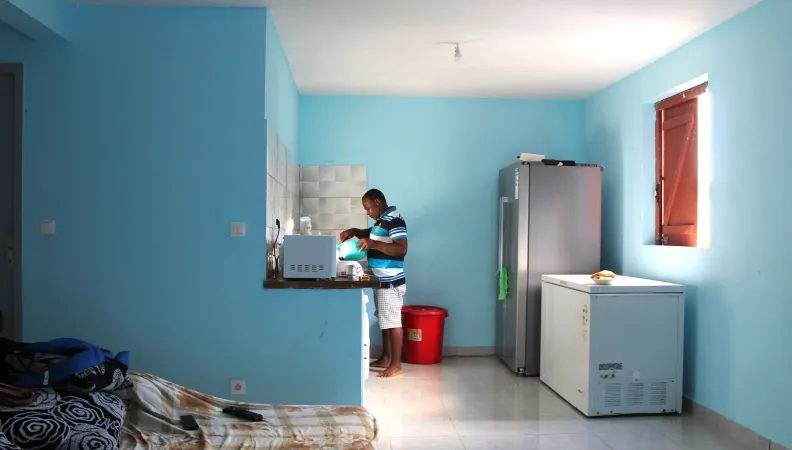Share the page
Roll-out of a refrigeration solution (Koolboks)
Project


-
Project start date
-
Status
In progress
-
Estimated date of project termination
-
-
Project financing date
-
-
Financing duration
-
3 years
-
Type of program
-
FFEM
-
Global financing amount
-
68843510 €
-
FFEM financing amount
-
1430580 €
-
Country and region
-
Nigeria, West Africa
-
Beneficiaries
-
Koolboks
In the absence of reliable electricity networks, refrigeration remains a major issue for the health and nutrition of millions of people in Nigeria. Supported by the FFEM, the project led by Koolboks roll out a solar-powered model which will be accessible to as many people as possible.
Context
In Nigeria, difficult access to reliable electricity networks makes refrigeration unavailable to millions of people. So maintaining a vaccine at a suitable temperature or conserving foodstuffs becomes a real public health challenge. 45% of these commodities are wasted every year.
In order to remedy the situation, the start-up Koolboks - supported by the FFEM - is developing a range of solar-powered refrigerators and freezers specifically for regions not served by the power grid. Thanks to its innovative energy storage technology which converts energy to ice, accessed via a pay-as-you-go model, the solution is both ecological and widely accessible.
Description
The project has 3 components:
- Contribute to cleaning up the environment by recycling used refrigerators and freezers, selling equipments powered by solar energy and employing 'natural' refrigerant fluids.
- Support local development and the improvement of living conditions by building an equipment assembly factory in Nigeria and reducing the losses of nutritional/biomedical products due to cool chain disruption.
- Reduce gender inequalities by making solar refrigeration more accessible, especially for SMEs of which half are woman-owned and whose income depends on maintaining the cool chain, for small businesses for example.
Impacts
- Access to an environmentally-friendly refrigeration system will benefit 63,500 people directly, and many more indirectly.
- 90% reduction in greenhouse gas emissions compared to conventional refrigerators powered by diesel generators.
- Emergence of a local power generation industry in the sustainable energy sector.
- Skills development with the hiring of 70 workers and engineers for the on-site assembly factory.
- Creation of 209 jobs filled by women and support for the 2,400 enterprises they will lead.
Exemplary and innovative characteristic
Supported by the FFEM, this project demonstrates social and ecological innovation through its Scrap-4-New programme, which offers discount to customers for recycling their old freezer/refrigerator in exchange for a new solar-powered unit. The refrigeration solution conceived by Koolboks is itself particularly innovative, allowing solar energy to be captured and transformed into ice for storage, using an “ice battery”, an insulator and natural refrigerant. Additionally, the local assembly factory for the refrigeration units will be the first of its kind in sub-Saharan Africa.
Also, PAYGO technology allow users to access a refrigeration solution at minimal cost via a flexible payments system (monthly, weekly, daily) depending on how the equipment is used.


